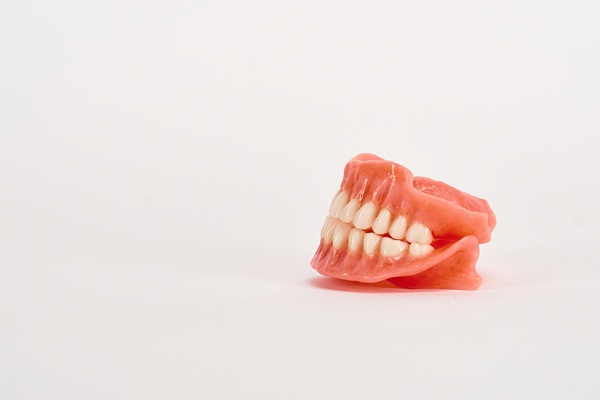 It might sound intimidating, but full mouth reconstruction is a term for a treatment that replaces missing or problem teeth. Certain forms of reconstruction may be necessary as teeth gradually wear down from use or grinding or begin to deteriorate with age. A patient may suffer from teeth that have decayed or been cracked, broken or otherwise damaged. Teeth that are missing entirely can also be replaced with reconstruction treatments.
It might sound intimidating, but full mouth reconstruction is a term for a treatment that replaces missing or problem teeth. Certain forms of reconstruction may be necessary as teeth gradually wear down from use or grinding or begin to deteriorate with age. A patient may suffer from teeth that have decayed or been cracked, broken or otherwise damaged. Teeth that are missing entirely can also be replaced with reconstruction treatments.
Types of Full Mouth Reconstruction
There are five main treatments that a person can pursue. Some only cover unstable teeth, while others can fill gaps in a smile or replace an entire arch of teeth. What treatment a patient chooses depends on the state of their teeth. Most treatments can be used to repair front teeth.
Crowns
Perhaps the most common type of full mouth reconstruction, a dental crown is a cap or covering that is laid over a natural tooth. Crowns are used if a tooth is internally decaying or damaged. A cracked tooth can be held together and stabilized, as the crown completely encases it all the way to the gumline. A patient can opt for a traditional crown, which is made in a lab separate from the dentist’s office, or a same-day crown, which is made in the office.
Bridges
A dental bridge is a kind of crown that replaces a missing tooth. The entire bridge is made up of three crowns. One crown fits over the empty space while the other two secure it in place by anchoring to the teeth on either side of the gap.
Veneers
These are thin covers that can be placed over the front of a tooth. Veneers are mostly used to restore a smile by concealing chips or cracks on the front of a tooth. They can also fix gaps between teeth and cover tooth discoloration, as the veneer is matched to the patient’s natural tooth color.
Implants
Dental implants go beyond the surface of the tooth to the root. If a tooth is missing, a dental implant is set and secured into the jawbone as its replacement. Implants are also sometimes used to support dentures or bridges.
Dentures
Both full and partial dentures can replace numerous teeth at one time. Partial dentures may be used if a patient still has some remaining natural teeth. However, if most of the teeth are missing, the rest can be pulled to make room for full dentures. Dentures help restore a person’s bite and smile. Technology for dentures only continues to improve, providing artificial teeth that look completely natural.
Check out what others are saying about our dental services on Yelp: Full Mouth Reconstruction in Peabody, MA.
Conclusion
Knowing where to start with full mouth reconstruction can be intimidating and confusing. Understanding the exact problems within a patient’s mouth is the first step to finding the correct solution. Once a patient has begun the discussion about reconstruction with a dentist, they can begin a journey toward successful restoration. With today’s dental technology, there is no reason anyone needs to feel self-conscious smiling because of missing or chipped front teeth.
Request an appointment or call Northside Dental Care, PC at 978-206-7077 for an appointment in our Peabody office.
Recent Posts
Missing one tooth or multiple teeth can make it harder to perform everyday functions. It can also make you feel self-conscious about smiling. Dental implants not only restore the function and appearance of your smile, but they also help restore your everyday oral health.Dental implants are artificial tooth roots surgically placed in a person's jawbone.…
Wear and tear make denture repair inevitable in the long run. This is why a general dentistry practice that deals with dentures should have in-house facilities for minor and moderate repairs. The practice should also have quick access to a dental lab in case a patient needs major repairs for their dentures. Knowing when to…
Dental implants can replace missing teeth using a combination of screwlike metal posts and dental crowns, bridges, or dentures. Many consider implants state-of-the-art teeth replacement. Though dental implants can be an effective way to restore your smile, it is important to ensure they are right for you and understand how they work.Dental implants can support…


